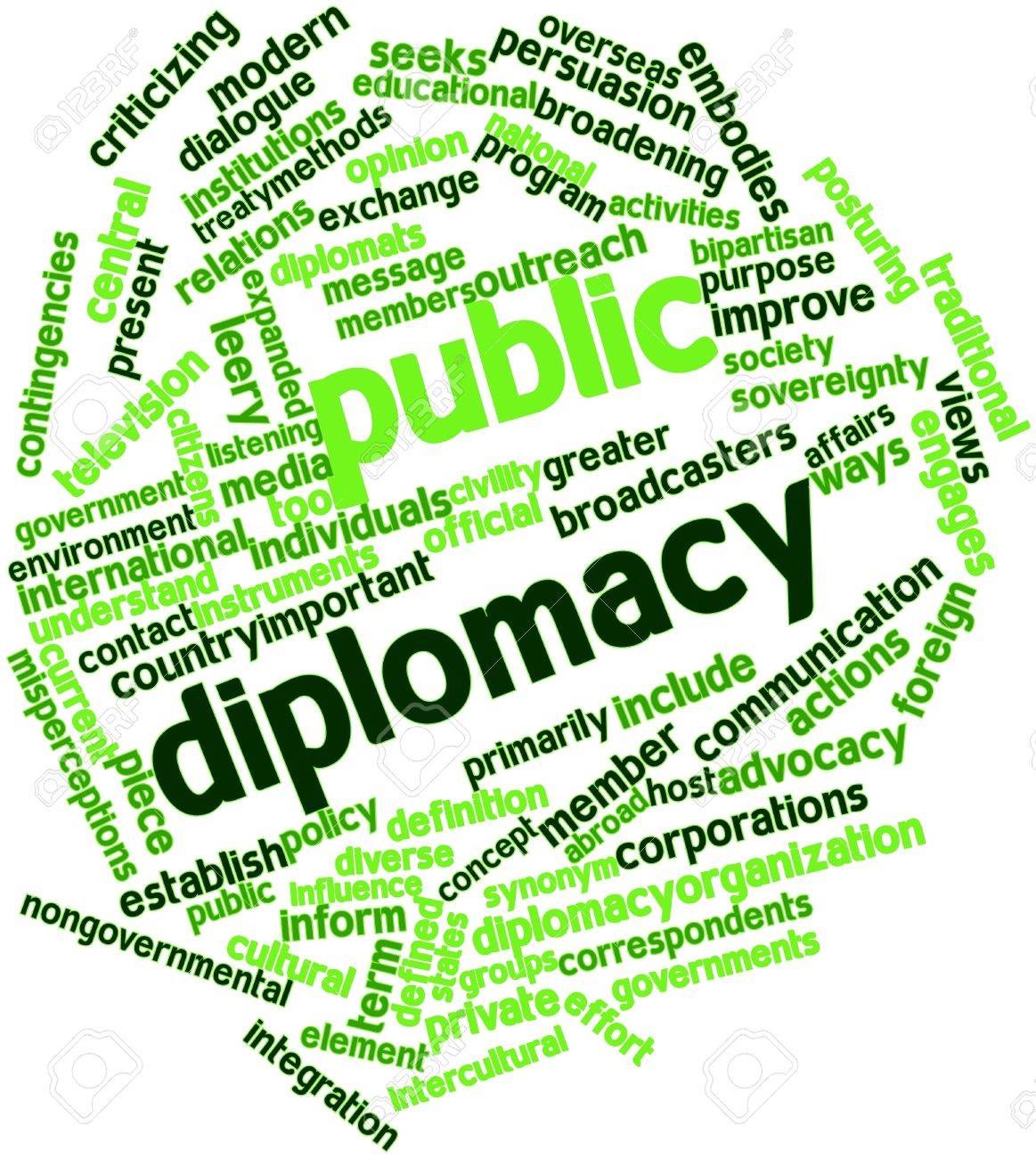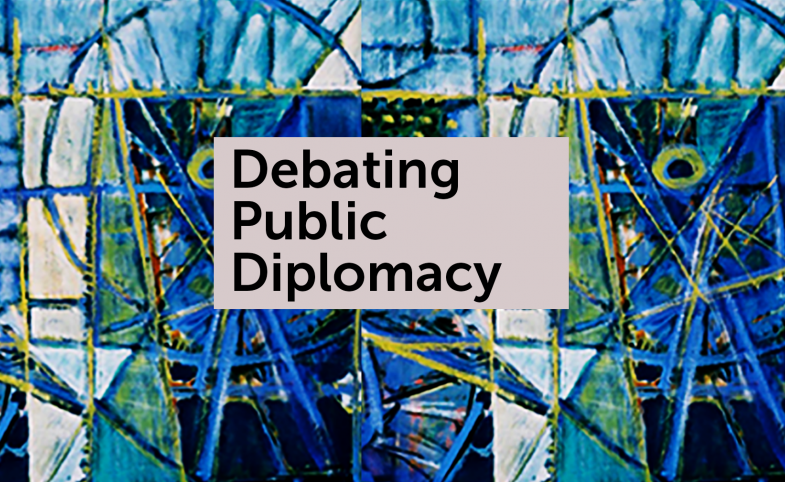 Two weeks ago I had the opportunity to further my study of Israel’s Digital Diplomacy by interviewing Gal Rudich, Head of New Media Section at the Israeli Foreign Ministry. Gal spoke to me about the Israeli digital diplomacy model, how the ministry coordinates digital diplomacy messages at the ministry and embassy level, how the ministry has been able to create a vibrant online community at its social media channels and how sees the future of digital diplomacy.
Two weeks ago I had the opportunity to further my study of Israel’s Digital Diplomacy by interviewing Gal Rudich, Head of New Media Section at the Israeli Foreign Ministry. Gal spoke to me about the Israeli digital diplomacy model, how the ministry coordinates digital diplomacy messages at the ministry and embassy level, how the ministry has been able to create a vibrant online community at its social media channels and how sees the future of digital diplomacy.
A summary of key findings can be found at the end of the interview.
Q: How do you define digital diplomacy?
A: It’s the process of delivering messages through online tools while utilizing the advantages of such tools in order to reach a defined target audience in a way that facilitates ongoing meaningful interaction with that audience.
Q: Can you give me an example of how you can use the advantages of digital tools to reach target audiences?
A: One thing I can do, for example, is research a certain hashtag used on twitter. By doing so, I can learn who is using this hashtag and who is interested in it. I can look at a hashtag map and see where a certain hashtag is popular and learn what’s being said on that topic in that location. With this knowledge I can then tailor my messages to that audience.
Q: You said that digital diplomacy is “the process of delivering messages through online tools”. What messages?
A: Mainly foreign policy messages, the same messages that are delivered in traditional diplomacy. I don’t think the message has changed, the medium has. Two decades ago, a diplomat would appear on a primetime TV show and, knowing that the show in question has an audience of two million people, he would have assumed that he delivered his message to ‘about’ two million people. Today, a diplomat or an embassy using digital tools can know exactly how many people are exposed to their message, how they react to this message and if the message is an effective one. Moreover, by engaging with the audience, a diplomat can continuously promote a message until it sinks in.
Q: The theoretical literature dealing with digital diplomacy places a great emphasis on engagement as a toll for building relationships between countries and foreign public. As the person who actually operates some of the foreign ministry’s social accounts, do you place an emphasis on engagement?
A: Absolutely. The scope of dialogue we currently have with our followers is something that we at the ministry are very proud of. We are always looking for ways to expand this dialogue. Our Facebook page in the Arabic language is one of the most engaging social media accounts we have at the moment. There is a lot of dialogue taking place there between the Ministry and its followers as well as among the followers themselves. Most of the people who arrive at this Facebook page have never spoken to Israelis and their knowledge about Israel is limited to what they hear in the news. Now, they have a unique opportunity to speak to us, to ask us questions and to hear our side of the story.
Q: What is the structure of the digital diplomacy unit at the Israeli foreign ministry?
A: The digital diplomacy unit is made up of four branches: The Internet branch, which is responsible for the ministry’s main internet home page in English and provides support to webmasters in our Embassies Consulates around the world. The New media branch is in charge of HQ’s social media accounts at the ministry level, as well as for in-house training. The third branch is composed of language-based Internet new media channels in Arabic, Persian, Russian Hebrew. The fourth branch deals with innovations initiatives in the digital space.
Another type of social media account the Ministry operates is topic-based. For example, the facebook page called “Culturebuzz Israel”, which highlights Israeli culture and is therefore managed by the cultural division, and not by us. There are also channels which focus on Green Technology, Economy, Academic affairs, and so on.
Q: You spoke earlier about the dialogue that takes place between your followers themselves. Why is this important?
A: Sometimes people will post messages on our social media accounts that criticize Israeli policy. When we began using social media, our unit placed an emphasis on providing response to such criticism or answering questions raised in our channels. Over the years, we have developed a vibrant online community that regularly gathers at our social media accounts and its members increasingly respond to criticism themselves, in addition to our own answers when those are necessary. This is very important as it indicates that we are getting our messages across and that we have been able to attract a vibrant, effective online community to our social media accounts.
Q: I was wondering who is the target audience of your English Facebook page. Did you define a target audience when you opened this page?
A: Our English language Facebook page aims to serve as a varied information center, both for our English speaking followers around the world and for our embassies worldwide. Social media directors at Israeli embassies can visit this page and learn what’s the message of the day or what’s the topic being highlighted today on our social media accounts. For instance, they can learn that today we are promoting news regarding Israeli innovation or that we’re addressing Israel’s stand on the latest negotiations with Iran. Then they take those messages and topics and distribute them on their own embassy’s social media accounts while taking into account the characteristics of the local target audience: Language, style, timing, etc.
However, there is a difference between our English Facebook page and our English twitter channel.
On twitter we manage 2 main accounts from the HQ, one (@Israel) deals with issues ranging from innovation, to culture, lifestyle tourism, and the other (@IsraelMFA) focuses on matters of state and diplomatic updates.
Our English Facebook page, on the other hand, involves both kinds of contents: Issues relating to Israeli foreign relations, news from the region and matters of state, and content that deals with Israeli technologies, cultural news and so on.
Q: Do you know who follows your social media accounts? Do you know who your audience is de-facto?
A: We have a good understanding of who follows our channels. Although I do not look at every single one of our new followers’ profiles, notifications regarding new followers are reviewed on a daily basis. If I discover that an important journalist or a foreign ministry just started following us, I will make a note of that. Usually I will also start following back in order to see if they re-tweet or use the information we provide. I then also look for opportunities to engage with them and bring them closer to our ever-growing community.
Q: Do you use twitter accounts of other embassies or diplomats to gather relevant information. For instance to learn if these embassies re-tweet your messages or post tweets that counter your messages?
A: I do browse through some social media accounts of foreign ministries, embassies and diplomats, but mostly to find content which can be of use. Like many tweeters, I also use twitter as a source of information to learn about political diplomatic issues taking shape around the world.
Q: How are the foreign policy messages disseminated through your social media accounts phrased? Do you phrase them?
A: There is a separate department in the ministry that is in charge of phrasing and deciding what content will be disseminated. Our department deals mainly with dissemination of information and engagement. Our expertise lies in taking foreign policy message, be it a message promoting tourism or denouncing terrorism, and spreading them virally through social media, while adapting the message to the unique characteristics to the spirit of the platform through which we distribute it.
Q: I noticed that most of the messages that appear on your twitter channel also appear on your Facebook page. Why is that? Why are the same messages disseminated through different mediums?
A: Because our goal is to get our message across to the largest audience possible. So we will disseminate that message through all our channels, be it twitter, Facebook, google+ etc, while, as noted, making the necessary adaptations for each and every platform. Interestingly, over the past years we have noticed that comments regarding content posted on YouTube are very different from comments we get on Facebook or twitter. Usually these comments are more violent and offensive. This could be due to the fact that YouTube is more of a visual medium and visual images perhaps tend to evoke more emotions.
Q: Finally, what do you think the future has in store for digital diplomacy?
A: I started this job over three years ago and had no predecessor. Today, I am part of a section which I believe will become bigger and bigger. In time it will turn into a division in size. There is now a growing recognition in the ministry, as there is around the world, of the central importance of digital diplomacy as a basic tool of public diplomacy, of its awesome potential and impact. But, there is also an understanding of how demanding it is and of the manpower necessary in order to reach that potential.
Summary:
There were four statements made by Mr. Rudich which I found most interesting
- It appears that Israel uses Facebook profiles at the ministry level as information centers for followers but, more importantly, for Israeli embassies. Social media directors at the embassy level can learn the “topic of the day” by visiting these profiles. It would be interesting to learn if this model is unique to Israel or common place amongst foreign ministries
- Israel has been able to create a “vibrant online community” at its digital diplomacy channels. This community takes an active part in promoting Israeli foreign policy messages. This is a fascinating example of the potential of digital diplomacy to create and leverage relationships with followers who serve as “digital ambassadors”
- I often wonder why the same foreign policy messages are disseminated across the different mediums of digital diplomacy. According to Mr. Rudich, this is the result of a desire to get the same message across to as many people as possible
- Finally, it is interesting to note that in the Israeli digital diplomacy model, the digital diplomacy unit is in charge of engagement and dissemination but not the actual phrasing of foreign policy message which is overseen by a separate department. This may enable the digital diplomacy unit to focus on the potential of digital diplomacy- listening and engagement








